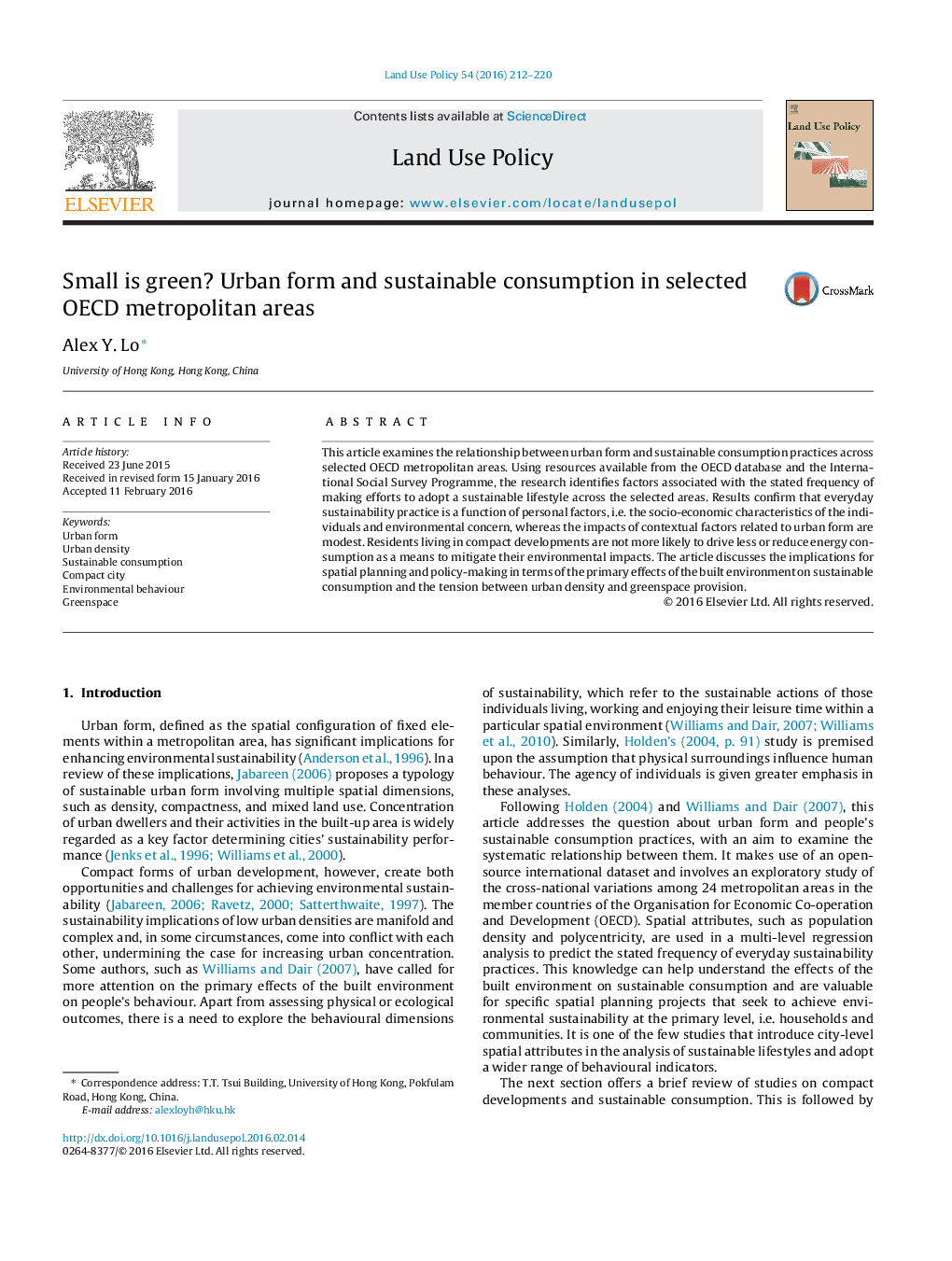| Article ID | Journal | Published Year | Pages | File Type |
|---|---|---|---|---|
| 6547327 | Land Use Policy | 2016 | 9 Pages |
Abstract
This article examines the relationship between urban form and sustainable consumption practices across selected OECD metropolitan areas. Using resources available from the OECD database and the International Social Survey Programme, the research identifies factors associated with the stated frequency of making efforts to adopt a sustainable lifestyle across the selected areas. Results confirm that everyday sustainability practice is a function of personal factors, i.e. the socio-economic characteristics of the individuals and environmental concern, whereas the impacts of contextual factors related to urban form are modest. Residents living in compact developments are not more likely to drive less or reduce energy consumption as a means to mitigate their environmental impacts. The article discusses the implications for spatial planning and policy-making in terms of the primary effects of the built environment on sustainable consumption and the tension between urban density and greenspace provision.
Keywords
Related Topics
Life Sciences
Agricultural and Biological Sciences
Forestry
Authors
Alex Y. Lo,
